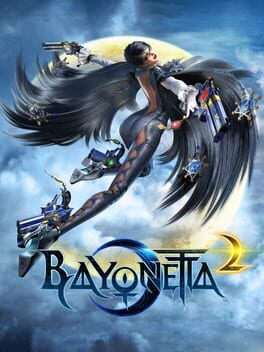sbodrojan
2021
I love this game so much. I love this game so much I dream about it. I love how every mechanical decision is built on some marketing quirk for the Playstation 5 hardware. I love that it is purely a fetish object. I love the way its narrative - which would be stupid, shallow, and unaffecting in any other medium - flows into a kind of demonic poetry, where its symbology slips into vestiges of Gamerdom (audio logs, the amalgamation of proc gen elements within its metroidvania structure, walking sim interludes). I love its bombastic cruelty. I love its bifurcated, cartoonishly sinister rhyming. I love that it is not the self versus the self or the self versus the world but the self versus hell. I love the coy way its upgrades only become useful once you have gone long enough without them. I love its pacing, which asks you to learn an area intimately and then flee through it to have enough psychological stamina for repeated efforts, an intentional barrier where the obstacle is just your willingness to give yourself over to what the game is teaching you, to forget you have ever played anything else, "immersion" as total mental submission. I love its bosses. I love Blue Oyster Cult. I love that beneath the skeleton is an astronaut. I love that Returnal is not enough, even for itself. I love that I loathe that this is the platonic ideal of the video games we have built for ourselves. Our best is ancient as the titans of an arcade's high score, Y.O.U. Most of all, I love that Returnal exists as a cacophony of echoes with no aural vanishing point; Plug your ears and the tone only gets deeper and louder.
2014
2017
The most inspired bit in NieR: Automata is the camera. Drawing from top-down arcade shooters, fighting games, run'n'gun platformers, and MMORPGs, it creates a dynamic visual language that looks nice and carefully instructs the player as to the mode of play without ever explicating these connections. It's genuinely thrilling to see a game this dynamic completely eschew the Naughty Dog style of soulless awe and lazy cinematic shorthand.
The combat itself is a real drag, though. The hacking minigames and mech levels having basically the same layout is a nice touch, but well before you reach Ending A it becomes tedious, and by the time the final battle rolls around, the game has gone beyond grinding to a sick annoyance. The combat is potentially deep; It's fine that there's never anything to compel you beyond button-mashing, but there's also no reasonable incentive to invest the time into pushing your skills farther, even if you're in love with the story and themes. Unlike other Platinum titles (whose Bayonetta pushes weapons and combos so deep that it becomes an expressive dance about that game's adoptive motherhood), N:A isn't a richer or more fun experience to master, and until the third playthrough, never quite integrates into the dramatics. The game rivals slot machine free-to-play games in how fully it disrespects your time.
The bits of story scattered throughout (not nearly enough to warrant 50 hours of gameplay, but a bit too monotonous to recap fully here) are progressively melodramatic and ludicrous. It's almost fun, in a delirious way, to come across each twist, each ridiculously overblown side quest, every juvenile moment of agony. But despite ostensibly playing it all straight, the rhythms are off, and the kind of sincerely affecting emotional beats that a soap opera like this never arrive. By the time all the babies commit suicide out of fear, its ridiculousness has been sapped of its buzzy energy, replaced with a hollow, grating nihilism.
The game begins as a meditation on a video game as having a consciousness within itself, and then, in its second playthrough, switches gears to discuss subjectivity and historiography, and then finally, in its last run, a brutal bit about programmed cycles. This all sounds really cool, and these threads admittedly flow nicely into one another, but the questions posited never toss around complications, let alone answers or contradictions. It is simply meant to feel dark and brooding. This game never creates moments that provoke philosophical thought; The names of the bossess, revealed on the second playthrough, don't recontextualize the fights so much as serve as limp puns: "Marx" looks like an industrial factory, "Simone" is a self-loathing ladybot in a dress. The sidequests don't interrogate its central questions of "life" (which, in the context of the game on its own, have no real purpose and thus lead nowhere), they are just brief exaggerations of the main arc. The late-game cult is little more than lazy signposting. And the ending, where you sacrifice your save file to destroy the end credits with the help of others, doesn't so much as refute the game's tone as offer a shallow gimmick.
But ultimately, you could argue that every single shortcoming is part of the point. NieR:Automata, a sequel to a game spun off from a controversial alternate ending of another series, lives as much in the creator and the game disc as it does in the players, the YouTube analysis, the fan wiki mods, and the forum hounds. That's beautiful, that's where interactive stories thrive. But N:A is built on a deep insincerity, where the gameplay is an endurance test, its dour story punishes you for emotional involvement, and its themes seem meticulously designed not to hold up to scrutiny or thoughtful analysis. It's a game about the relationship between creator and fan that offers nothing of value to the player.
So the game, like The Stanley Parable and GTA V, is a punchline with a whiny setup. It is a bad game to play and a pain to mull over. It's an ugly, cynical mess, and for how smug it is, kind of an embarrassment.
The combat itself is a real drag, though. The hacking minigames and mech levels having basically the same layout is a nice touch, but well before you reach Ending A it becomes tedious, and by the time the final battle rolls around, the game has gone beyond grinding to a sick annoyance. The combat is potentially deep; It's fine that there's never anything to compel you beyond button-mashing, but there's also no reasonable incentive to invest the time into pushing your skills farther, even if you're in love with the story and themes. Unlike other Platinum titles (whose Bayonetta pushes weapons and combos so deep that it becomes an expressive dance about that game's adoptive motherhood), N:A isn't a richer or more fun experience to master, and until the third playthrough, never quite integrates into the dramatics. The game rivals slot machine free-to-play games in how fully it disrespects your time.
The bits of story scattered throughout (not nearly enough to warrant 50 hours of gameplay, but a bit too monotonous to recap fully here) are progressively melodramatic and ludicrous. It's almost fun, in a delirious way, to come across each twist, each ridiculously overblown side quest, every juvenile moment of agony. But despite ostensibly playing it all straight, the rhythms are off, and the kind of sincerely affecting emotional beats that a soap opera like this never arrive. By the time all the babies commit suicide out of fear, its ridiculousness has been sapped of its buzzy energy, replaced with a hollow, grating nihilism.
The game begins as a meditation on a video game as having a consciousness within itself, and then, in its second playthrough, switches gears to discuss subjectivity and historiography, and then finally, in its last run, a brutal bit about programmed cycles. This all sounds really cool, and these threads admittedly flow nicely into one another, but the questions posited never toss around complications, let alone answers or contradictions. It is simply meant to feel dark and brooding. This game never creates moments that provoke philosophical thought; The names of the bossess, revealed on the second playthrough, don't recontextualize the fights so much as serve as limp puns: "Marx" looks like an industrial factory, "Simone" is a self-loathing ladybot in a dress. The sidequests don't interrogate its central questions of "life" (which, in the context of the game on its own, have no real purpose and thus lead nowhere), they are just brief exaggerations of the main arc. The late-game cult is little more than lazy signposting. And the ending, where you sacrifice your save file to destroy the end credits with the help of others, doesn't so much as refute the game's tone as offer a shallow gimmick.
But ultimately, you could argue that every single shortcoming is part of the point. NieR:Automata, a sequel to a game spun off from a controversial alternate ending of another series, lives as much in the creator and the game disc as it does in the players, the YouTube analysis, the fan wiki mods, and the forum hounds. That's beautiful, that's where interactive stories thrive. But N:A is built on a deep insincerity, where the gameplay is an endurance test, its dour story punishes you for emotional involvement, and its themes seem meticulously designed not to hold up to scrutiny or thoughtful analysis. It's a game about the relationship between creator and fan that offers nothing of value to the player.
So the game, like The Stanley Parable and GTA V, is a punchline with a whiny setup. It is a bad game to play and a pain to mull over. It's an ugly, cynical mess, and for how smug it is, kind of an embarrassment.



